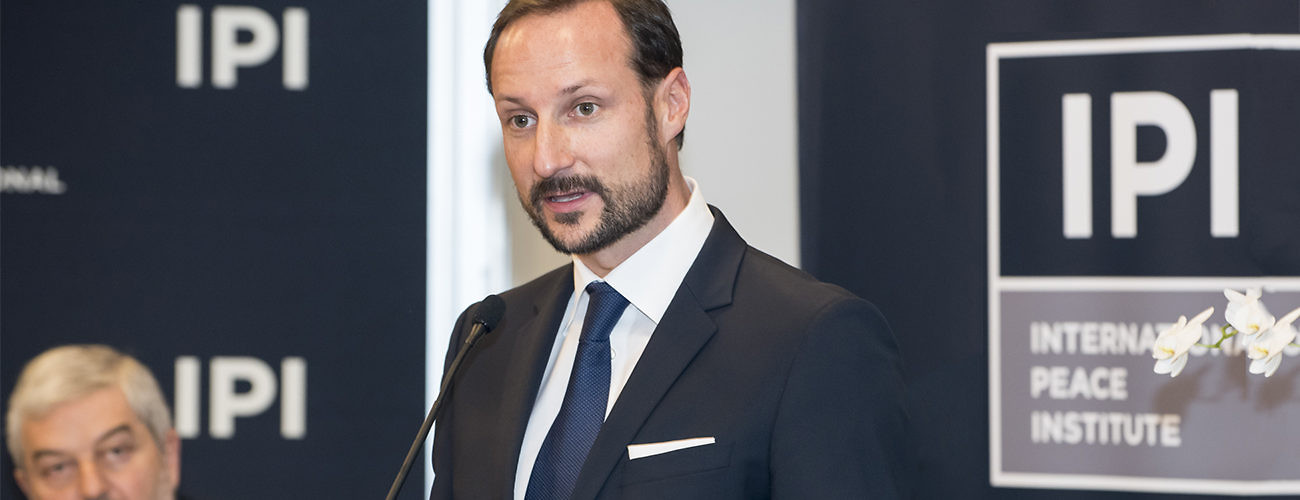Addressing a policy forum on the question of “Reaching the Furthest Behind First: Implementing the 2030 Agenda,” H.R.H. Crown Prince Haakon of Norway noted that the major UN humanitarian accomplishment of the past decade—the Millennium Development Goals (MDGs)—had not reached the people most in need. “One of the most glaring lessons from the MDGs was that too many of the most vulnerable were left behind,” he said. “We need to reach out to the poorest and most marginalized groups.”
The Crown Prince, also a United Nations Development Programme (UNDP) Goodwill Ambassador, said in his opening remarks that despite progress, there is room for improvement on infant mortality. “The number of children dying before the age of five has been halved since 1990,” he said. “On a yearly basis, 6 million children who would have died before their first birthday, now survive. That is a little more than the total of Norway’s population.”
Magdy Martínez-Solimán, Director, Bureau for Policy and Programme, UNDP, then took up the event’s theme. “The SDGs aspire to reach those furthest behind first,” he said. “This will not come to fruition if we do not see the faces of those who’ve been left behind. Their faces are everywhere, but in times of violent conflict or situations of fragility, suffering and exclusion are exacerbated.”
Mr. Martínez-Solimán encouraged the participants to remember that behind these abstract statistics are real people, and it is of the utmost urgency to end their plight. “We’re talking about 1.5 million people,” he said. “Possibly by 2030, as many as 1 billion.”
UNDP’s challenges are about more than the money, he added. “While we have the scientific resources to end the suffering,” to not act would amount to a “moral indecency,” he said.
Gwi-Yeop Son, United Nations Office for the Coordination of Humanitarian Affairs (OCHA) Director, called for “a transformation of the UN system to deliver to those left behind by the MDGs, like the 37 million people facing food insecurity in Sahel today, and millions displaced, and two million children out of school due to the impact of the Syria crisis.”
The most vulnerable must be supported to become self-reliant, she said. “We must move from delivering aid to ending needs, particularly in protracted crises.”
Yusuf‑Garaad Omar, Permanent Representative of Somalia to the UN, shared his perspective of transitioning from years of armed conflict. The country’s institutions are in their infancy stage, but making progress by his assessment. The “Somali government has launched a three-year plan, the first time in 30 years that Somalia has a national development plan, one that is in line with the SDGs,” he said.
Geir O. Pedersen, Permanent Representative of Norway to the UN, reminded participants that “the reason we’re here is because we want to prevent what is happening in Syria, Yemen, and South Sudan from happening again by building up fragile states.”
Ambassador Pedersen also drew attention to the issue of financing the Sustainable Development Goals. “Even though the UN has been successful in many ways, they have limited resources.” he said. “We talk as if UNDP has all the resources in the world to change the world, but frankly speaking they do not. UNDP is struggling because they’re receiving less core resources than they should, and the enormous humanitarian needs of the world.”
He suggested engaging the private sector. “Without the private sector, there’s no way we’ll be successful,” he said.
Jimena Leiva Roesch, IPI Senior Policy Analyst, said that the challenges of the global era cannot be solved simply. “For every complex problem, in this case fragility, there is an answer that is clear, simple—and wrong.” she said. “Fragility is not about one issue. Responding to fragility means addressing a wide array of needs.” Watch her full remarks here>>
She pointed out how ironic it is that academics committed to peace end up researching violence almost exclusively. “We study what we fear, and what we fear is conflict and violence,” she said. “But the 2030 agenda encourages us to study peace. It encourages us to study what makes peace despite pressure from power players. This is what we’re committed to do.”
The December 7, 2016 event was held in partnership with the Permanent Missions of Norway and the Somali Republic to the UN, and UNDP.
Adam Lupel, IPI Vice President, moderated the conversation.








